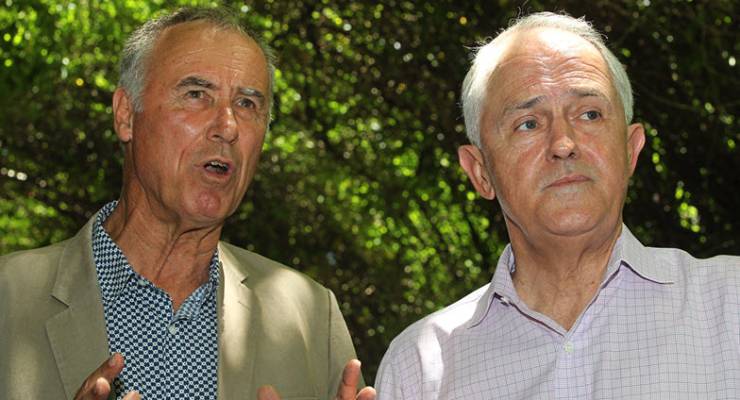
As a Chinese-Australian, I do not think I recall ever seeing our community being front and centre in Australia’s political system. But this past weekend, perhaps for the first time in Australian history, Chinese-Australians determined whether Australia’s federal government would be in majority or minority government. The Bennelong byelection was not just a mini-referendum of the Turnbull government or the eligibility of Bill Shorten as prime minister, it was a test on how multicultural communities are perceived in the eyes of political parties and campaigns.
When it came to winning over the Chinese-Australian community, both major parties thought the Sam Dastyari scandal would be the difference-maker. The byelection campaign quickly turned from bread-and-butter issues such as education, infrastructure and health, to Chinese foreign influence in Australian politics. But the Chinese-Australian community is not a monolithic community, and it shouldn’t be treated as one by political parties. Assuming the donations saga would be the only issue that would sway our vote was also a huge mistake.
On the campaign trail, PM Malcolm Turnbull repeatedly referenced the Dastyari donations saga, spruiking his new foreign influence laws and even going as far as to quote Mao Zedong. All of this was clearly an effort to appeal to — and build trust with — Chinese-Australian voters. It baffled me and others within our community why Turnbull chose to use Mao’s “the Chinese people have stood up” quote during the campaign to prove his point on Chinese influence. This tactic was not only confusing but offensive, because it was out of context and exposed Turnbull’s ignorance of Chinese culture and history.
On top of that, for Labor to say the Dastyari saga hurt their chances in Bennelong also demonstrates their ignorance when it comes to the Chinese-Australian community. Both major parties seemed to struggle to understand a simple fact: like all Australians, Chinese-Australians are concerned with everyday issues that affect their daily lives. During the 2016 federal election, an exclusive poll conducted by media agencies Identity Communications and Anomaly show Chinese-Australians are most concerned about health, the economy, tax and superannuation, the same bread-and-butter issues shared by the majority of Australians. The difference is Chinese-Australians may relate to these issues differently due to their cultural mindset.
Moving on to campaign tactics, both sides were less than impressive. From what I’ve heard, on the ground, both parties did very little to engage and reach out to the Chinese-Australian community. In all my experience of campaigning and working with multicultural communities, you need to do more than just recruit language-speaking volunteers, produce translated how-to-vote cards and advertise in Chinese media and social media platforms like WeChat.
If political parties want to build trust and confidence, it needs long-term engagement such as involving Chinese-Australians in the development and discussion of policy concepts and platforms. These relationships cannot be built in one election campaign. Labor said they were the underdogs in this byelection. However, if Labor was serious in giving themselves a fighting chance, they should’ve preselected a high-profile quality candidate from a Chinese-Australian background. Such a candidate would assist Labor to not only deliver its message to Chinese-Australian voters, it would also help Labor navigate through the cultural nuances and political complexities surrounding Chinese influence in Australian politics.
Just like any other community, Chinese-Australians are sick and tired of political parties only showing interest in them during election campaigns. The Bennelong campaign has demonstrated once again, when it comes to campaigning in modern multicultural Australia, political parties still have much to learn.
*Jieh-Yung Lo is a Chinese-Australian writer, policy adviser, and member of the ALP. He tweets at @jiehyunglo.








There is a difference between Australian – Chinese and Chinese – Australians it is self explanatory.
You beat me to it!
Good point by the writer, would’ve been much more effective for Labor to choose an Asian-Australian candidate with deep ties to the area, than to draft a former Premier with plenty of baggage.
Only 20% of the electorate is of Chinese background, and some sub-groups of them are suspicious of other sub-groups of them.
My impression was that Shorten felt that the Dastyari saga hurt Labor with the Anglo and other communities, not specifically with Chinese Australian electors.Otherwise an insightful article.
“the Chinese-Australian community is not a monolithic community”
Oh, yeah, then why do you spend your entire article writing as if they are? And why do you suggest selecting a “Chinese-Australian” candidate as a way to win votes? – surely “Chinese-Australians” are capable of voting beyond narrow ethnic self-interest for the best candidate?
Poor form Crikey, yet another unimaginative hack writing unimaginative filler. And this one clearly an exponent of that proud ALP tradition, ethnic branch-stacking.